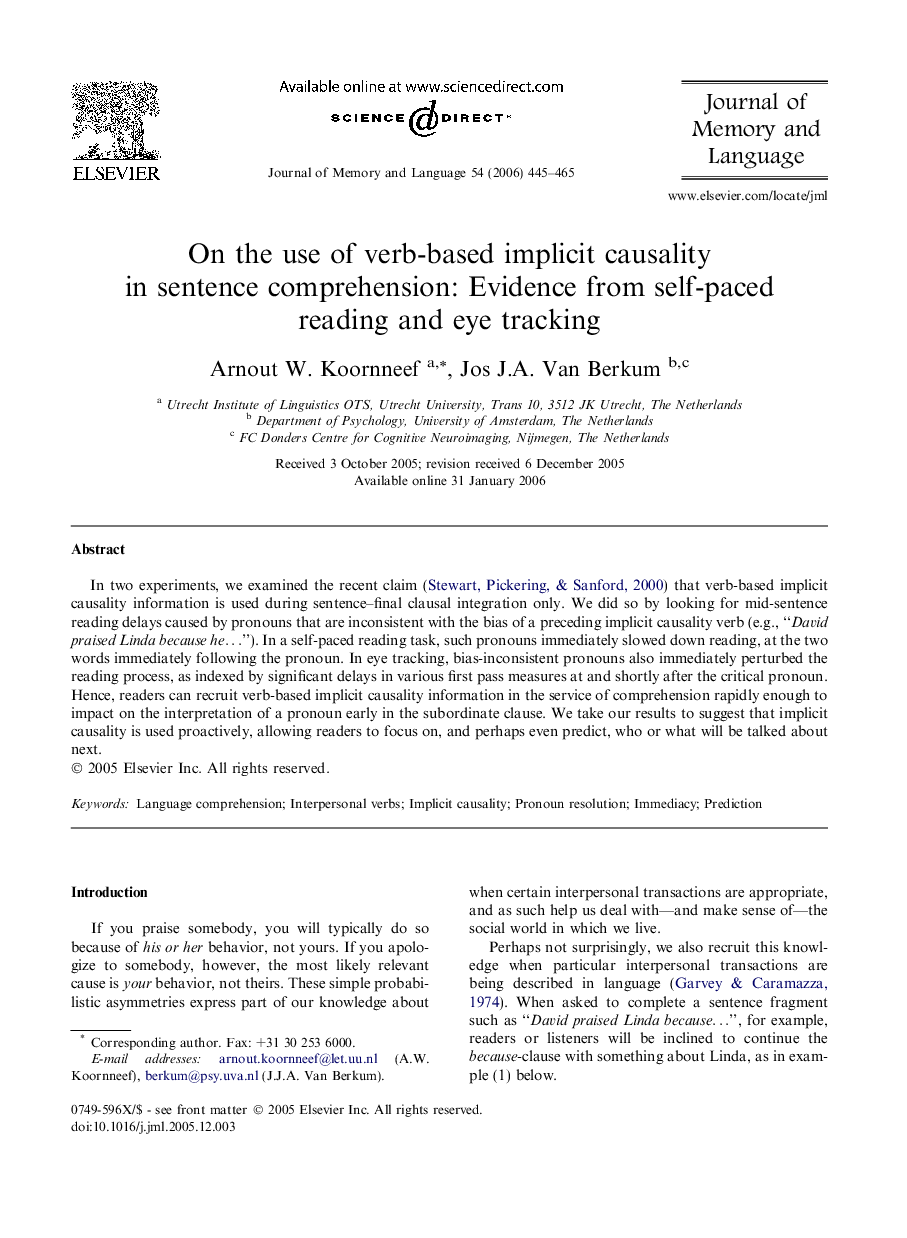| Article ID | Journal | Published Year | Pages | File Type |
|---|---|---|---|---|
| 932394 | Journal of Memory and Language | 2006 | 21 Pages |
In two experiments, we examined the recent claim (Stewart, Pickering, & Sanford, 2000) that verb-based implicit causality information is used during sentence–final clausal integration only. We did so by looking for mid-sentence reading delays caused by pronouns that are inconsistent with the bias of a preceding implicit causality verb (e.g., “David praised Linda because he…”). In a self-paced reading task, such pronouns immediately slowed down reading, at the two words immediately following the pronoun. In eye tracking, bias-inconsistent pronouns also immediately perturbed the reading process, as indexed by significant delays in various first pass measures at and shortly after the critical pronoun. Hence, readers can recruit verb-based implicit causality information in the service of comprehension rapidly enough to impact on the interpretation of a pronoun early in the subordinate clause. We take our results to suggest that implicit causality is used proactively, allowing readers to focus on, and perhaps even predict, who or what will be talked about next.
